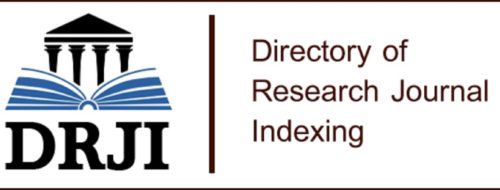Predictive models applied in education: cases of dropping out of study
DOI:
https://doi.org/10.56124/encriptar.v5i10.0050Keywords:
Student desertion, Student repetition, Data mining, Predictive modelAbstract
The purpose of this research is to analyze data from a review of scientific articles based on predictive models used in education, with specificity in cases of study abandonment to identify the most efficient model according to the frequency of use. The systematic review methodology was used applying a meta-analysis, starting with the definition of keywords, then criteria such as the specification of the technique and the type of learning of a certain model were integrated. Finally, statistical tests were performed based on the precision of each one. It was evidenced that the decision trees obtained a mean precision of 86.49% with a standard deviation of 9% in 53 cases found. In addition, the neural network and random forest models reached mean precision values of 89.18% and 91.33%, standard deviation of 5.90% and 3.08% in 7 and 8 cases respectively.
Keywords: Student desertion, Student repetition, Data mining, Predictive model.
Downloads
References
Carrizo, D. & Moller, C. (2018). Estructuras metodológicas de revisiones sistemáticas de literatura en Ingeniería de Software: un estudio de mapeo sistemático. Ingeniare, 26, 45-54.
Gonzembach, J. D., Demetrio, W., & Delgado, D. (2021). Inteligencia computacional para la evaluación de las capacidades coordinativas de los estudiantes. Computational intelligence for the evaluation. 14(4), 271–287. https://publicaciones.uci.cu/index.php/serie/article/view/749/734
Guerra, L., Rivero, D., Ortiz, A., Diaz, E., & Quishpe, S. (2020). Minería de datos y uso de inteligencia computacional para la determinación de perfiles de insolvencia económica. Revista Ibérica de Sistemas e Tecnologias de Informação, E35, 48–61.
Kabathova, J., & Drlik, M. (2021). Towards predicting student’s dropout in university courses using different machine learning techniques. Applied Sciences (Switzerland), 11(7). https://doi.org/10.3390/app11073130
Oprea, M. (2020). A general framework and guidelines for benchmarking computational intelligence algorithms applied to forecasting problems derived from an application domain-oriented survey. Applied Soft Computing Journal, 89, 106103. https://doi.org/10.1016/j.asoc.2020.106103
Pandolfi, D., Villagra, A., & Molina, D. (2017). Inteligencia computacional aplicada a la optimización multiojetivo de problemas de scheduling con restricciones. 91–94. http://sedici.unlp.edu.ar/handle/10915/61503
Telikani, A., Gandomi, A. H., & Shahbahrami, A. (2020). A survey of evolutionary computation for association rule mining. Information Sciences, 524, 318–352. https://doi.org/10.1016/j.ins.2020.02.073
Published
How to Cite
Issue
Section
License
Copyright (c) 2022 Scientific Journal of Informatics ENCRYPT - ISSN: 2737-6389.

This work is licensed under a Creative Commons Attribution-NonCommercial-ShareAlike 4.0 International License.















